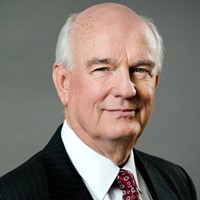Accountants’ Liability Tool Kit
-
January 13, 2026
-
There is a myriad of information relevant to Accountants’ Liability matters. It can be time consuming and confusing finding the relevant authoritative guidance. FTI Consulting’s experts have extensive experience as consulting and testifying experts for audit and tax firms and their counsel. We have assembled the resources below to help you navigate through the relevant guidance in this topical area.
Regulatory Regimes
Auditing Standards
Accounting Standards
Independence Rules
FTI Consulting’s Service Offerings and Key Contacts
Selected Additional FTI Experts
Regulatory Regimes
The following entities have enforcement/disciplinary authority over independent auditors in the U.S. Links are provided below for more information and to help assess how prior enforcement actions have addressed issues similar to those that your client may be facing.
The Public Company Accounting Oversight Board (“PCAOB”) has authority, under Section 105 of the Sarbanes-Oxley Act, to conduct investigations, and impose disciplinary or remedial sanctions against firms and individuals associated with firms that have audited a public company, a broker or a dealer.
- Read more about the PCAOB’s enforcement program.
- FTI Consulting has compiled all “PCAOB Settled Disciplinary Orders” in a free searchable PDF file (current as of November 6, 2025). Orders from the initial issuance through December 2019 are available here, and those issued from January 2020 to the present can be found here.
- FTI Consulting has compiled all “PCAOB Adjudicated Orders” in a free searchable PDF file (current as of November 6, 2025): Read More.
- FTI Consulting has compiled all "PCAOB Terminated Bars" in a free searchable PDF file (current as of November 6, 2025): Read More.
- Consider uploading the above PCAOB orders into an AI analytics platform to identify patterns in enforcement trends, common violations, and disciplinary outcomes. If you do not have access to an AI platform, you can reach out to one of the Key Contacts below and we can use FTI Consulting's proprietary AI platform.
The Securities and Exchange Commission (“SEC”) has federal statutory authority and responsibility for establishing the regulation of auditors. Its enforcement staff conducts investigations into possible violations of federal securities laws and litigates the Commission’s civil enforcement proceedings in federal courts and in administrative proceedings. Such proceedings can be against a variety of types of respondents. Read more about the SEC’s enforcement program. You can learn more about the SEC’s recent activity in the SEC's 2024 Annual Report and a press release summarizing the 2024 enforcement results available here.
Enforcement actions against accountants are typically disclosed in Accounting and Auditing Enforcement Releases (“AAERS”) and/or Administrative Proceeding Orders and Notices. AAERS typically relate to financial reporting matters; Administrative Proceeding Orders and Notices include a wider variety of SEC enforcement actions.
- A listing of AAERS is available here.
- A listing of Administrative Proceeding Orders and Notices is available here.
State Boards of Accountancy issue and administer individual CPA and accounting firm licenses. The state boards can also revoke or suspend these licenses and most (if not all) state societies of CPAs have their own ethics committees that conduct investigations and administer disciplinary actions. State boards routinely correspond with the SEC and PCAOB enforcement divisions.
- Read more at the State Boards of Accountancy websites.
The American Institute of Certified Public Accountants (“AICPA”) and each state CPA society have respective codes of professional conduct. Because of similarities between these entities’ codes of conduct, the AICPA and most state societies have joined together to create the Joint Ethics Enforcement Program (“JEEP”).
- Read more about the AICPA’s enforcement program and disciplinary actions.
The AICPA’s Statements on Standards for Tax Services (“SSTSs”) are enforceable tax practice standards for members of the AICPA. The SSTSs apply to all members regardless of the jurisdictions in which they practice and the types of taxes with respect to which they are providing services. The SSTSs and interpretations delineate members’ responsibilities to taxpayers, the public, the government, and the profession. They are intended to be part of an ongoing process of articulating standards of tax practice for members.
- Read more about the AICPA’s SSTSs.
Internal Revenue Service – Circular 230 is the common name given to the body of regulations promulgated under the enabling statute found at Title 31, United States Code § 330. This statute and the body of regulations are the source of the Office of Professional Responsibility (OPR) authority. Circular 230 defines “practice” and who may practice before the IRS; describes a tax professional’s duties and obligations while practicing before the IRS; authorizes specific sanctions for violations of the duties and obligations; and, describes the procedures that apply to administrative proceedings for discipline.
- Read more about the Regulations Governing Practice before the Internal Revenue Service.
The Federal Deposit Insurance Corporation (“FDIC”) has authority to bring enforcement actions against banks and their officers, directors, employees, controlling shareholders, agents and certain other “institution-affiliated parties” for violations of laws, rules, or regulations. Auditors are considered institution-affiliated parties and are therefore subject to FDIC enforcement. However, the FDIC has not traditionally brought such actions – instead, it typically files civil complaints against auditors in its role as receiver of a failed bank.
- Read more about the FDIC’s enforcement program.
Auditing Standards
When assessing an auditor’s conduct, it is critical to know which standards were applied – this will be explicitly described in the auditor’s report. Links are provided below to the most common auditing standards. You can also reach out to one of the Key Contacts below for help finding the relevant auditing guidance.
PCAOB Auditing Standards are applicable for audits of U.S. public companies and broker dealers. These standards were reorganized effective December 31, 2016.
- Read more about the pre-reorganized standards in effect prior to December 31, 2016.
- Read more about the current standards and those relevant for other periods since December 31, 2016.
PCAOB Rules are distinct from PCAOB auditing standards but relevant for audits performed under these standards.
The following PCAOB rules are typically most relevant to Accountants’ Liability matters
- Read more about the rules related to the enforcement program.
- Read more about the terms used in PCAOB standards to describe levels of responsibility.
- Read more about the ethics and independence rules
- Read more about other defined terms.
Read the full list of PCAOB Rules.
AICPA Auditing Standards are also known as generally accepted auditing standards (“GAAS”) and are typically applicable for audits of U.S. private companies. These standards went through a clarification process, which was completed in February 2014.
- The University of Mississippi library maintains historical AICPA publications. More information about this resource is available here. Historical versions of AICPA professional standards are available here.
- Read more about the current standards and download a copy here.
- GAAS includes defined terms in AU-C 200.14.
- GAAS also provides additional guidance regarding the levels of responsibility imposed on practitioners in AU-C 200 paragraphs .25, and .26.
International Standards on Auditing are typically applicable for audits of foreign companies.
- The 2013 Handbook Volume I, which includes the auditing standards (the other volumes relate to topics such as quality control and interim review standards) is available here.
- The 2015 Handbook is available here.
- The 2016-17 Handbook is available here.
- The 2018 Handbook is available here.
- The 2020 Handbook is available here.
- The 2021 Handbook is available here.
- The 2022 Handbook is available here.
- The 2023-2024 Handbook is available here.
- The 2025 Handbook is available here.
Cross-reference to Analogous PCAOB, AICPA and International Auditing Standards. Read more.
Government Auditing Standards are also known as generally accepted government auditing standards (“GAGAS”) or the Yellow Book. These standards are typically applicable for governmental agencies and certain entities that receive government awards.
- The 2011 version of the Yellow Book, which is effective for financial statement audits for periods ending on or after December 15, 2012, and for performance audits beginning on or after December 15, 2011 is available here.
- The 2018 version of the Yellow Book, which superseded the 2011 Yellow Book, is effective for financial statement audits for periods ending on or after June 30, 2020, and for performance audits beginning on or after July 1, 2019 is available here.
- A technical update to the 2018 version of the Yellow Book, published on April 14, 2021 and effective immediately upon issuance, is available here.
- The 2024 revision of the Yellow Book, which supersedes the 2018 Revision Technical Update, is effective for financial and performance audits, attestation engagements, and reviews of financial statements for periods beginning on or after December 15, 2025. The revision is available here.
Accounting Standards
When assessing an auditor’s conduct, it is important to know which accounting standards the client applied when preparing its financial statements subject to audit – this will be explicitly stated in the auditor’s report. Links are provided below to the most frequently applied accounting standards. You can also reach out to one of the Key Contacts below for help finding the accounting guidance relevant to your fact pattern.
Generally Accepted Accounting Principles (“GAAP”) are promulgated by the Financial Accounting Standards Board (“FASB”) and published through a Codification (FASB Codification). GAAP is typically applied by U.S. public and private companies.
- Access the codification via a free enhanced view here.
SEC pronouncements provide accounting and disclosure guidance applicable to U.S. public companies.
- While the FASB Codification included certain SEC guidance and selected Staff interpretations, it does not contain the entire population of SEC rules, regulations, interpretive releases and staff guidance.
- The SEC’s Division of Corporation Finance Financial Reporting Manual provides informal SEC Staff interpretations. The version updated as of December 2022 is available here.
- A codification of Staff Accounting Bulletins (“SABs”) is available here.
- A listing of selected SABs by number is available here.
- Additional links to SEC rules and regulations, including Regulation S-X, Regulation S-K and industry guides are available here.
International Financial Reporting Standards (“IFRS”) are typically applied by foreign companies, even those that are listed on U.S. exchanges.
- Access (via Basic Registration) to the current consolidated IFRS Standards is available here.
Governmental Accounting Standards are promulgated by the Governmental Accounting Standards Board (“GASB”) and are typically applied by U.S. state and local governments. Read more about GASB Pronouncements.
Independence Rules
External auditors are required to be independent of their audit clients. The specific guidance regarding whether an auditor is independent differs depending, in large part, on the relevant auditing standards employed. You can also reach out to one of the Key Contacts below for help finding the relevant independence guidance.
PCAOB Independence Requirements are applicable for audits of U.S. public companies and broker dealers. PCAOB Ethics and Independence Rules provide certain guidance but most of the PCAOB’s independence requirements are adopted from other agencies, including: the AICPA’s independence guidance that was in existence on April 16, 2003, the SEC’s auditor independence guidance and certain standards from the Independence Standards Board (“ISB”). Links are provided below for each of these agencies’ guidance adopted by the PCAOB.
PCAOB guidance
PCAOB Rule 3500T states “to the extent that a provision of the Commission’s rule is more restrictive – or less restrictive – than the Board’s Interim Independence Standards, a registered public accounting firm must comply with the more restrictive rule.”
- Read more about PCAOB Rules 3500T – 3526, which provide PCAOB issued guidance regarding auditor independence.
- PCAOB Staff Questions and Answers regarding independence are available here.
- Read more about PCAOB Staff Guidance regarding Audit Committee communications concerning independence.
- In November 2020, the PCAOB amended its independence standards to align with the SEC’s related October 2020 amendments. The PCAOB’s amendments are available here.
AICPA guidance (as adopted by the PCAOB)
- Read more about the AICPA’s Professional Conduct Rule 101 as it existed on April 16, 2003 (adoption date).
- Read more about the AICPA’s Ethics Rulings regarding independence as it existed on April 16, 2003.
SEC guidance
The SEC’s independence rules are promulgated in Regulation S-X Rule 2-01(b) as well as related rule making releases. A copy of Rule 2-01 is available here.
Additional SEC guidance is available in a series of releases issued since 2000:
- Read more about the Proposed Rule included in a June 2000 Release.
- Read more about the Final Rule included in a November 2000 Release.
- Read more about the Strengthened Rule included in a January 2003 Release.
- Read more about Corrections to the Strengthened Rule included in a March 2003 Release
- Read more about SEC independence guidance, including FAQs issued in June 2019.
- Read more about Amendments to Independence Rules issued in October 2020.
FTI Consulting has compiled these SEC releases regarding independence in a free searchable PDF file here.
ISB guidance
The PCAOB adopted three pieces of guidance issued by the ISB:
- The Independence Standard No. 2 is available here.
- The Independence Standard No. 3 is available here.
- The ISB Interpretation 99-1 is available here.
AICPA Independence Requirements are typically applicable for audits of U.S. private companies. In certain areas, the AICPA’s guidance is less restrictive than the PCAOB’s. The AICPA’s guidance is found primarily in section 1.200 of its Code of Professional Conduct.
Department of Labor (“DOL”) Independence Requirements are applicable for audits of employee benefit plans.
- The DOL’s independence guidance is codified in its Interpretive Bulletin 75-9 (29 CFR 2509.75-9). It is available here.
- A comparison of AICPA and DOL independence guidance is available here.
Governmental Independence Requirements are typically applicable for audits of governmental agencies and certain entities that receive government awards.
- Independence standards are in chapter three of the Yellow Book (see links in the Auditing Standards section above).
- A comparison of Yellow Book to AICPA standards (as of 2022) is available here.
International Independence Requirements are typically applicable for audits of foreign companies and are found in the International Code of Ethics for Professional Accountants.
- The 2025 Handbook of the International Code of Ethics for Professional Accountants is available here.
- The 2024 Handbook of the International Code of Ethics for Professional Accountants is available here.
- The 2023 Handbook of the International Code of Ethics for Professional Accountants is available here.
- The 2022 Handbook of the International Code of Ethics for Professional Accountants is available here.
- The 2021 Handbook of the International Code of Ethics for Professional Accountants is available here.
- The 2020 Handbook of the International Code of Ethics for Professional Accountants is available here.
- The 2018 Handbook of the International Code of Ethics for Professional Accountants is available here.
- The 2016 Handbook of the International Code of Ethics for Professional Accountants is available here.
FTI Consulting’s Service Offerings
We have extensive experience providing consulting and litigation support in matters related to accountants’ liability. Our professionals include former officials with the PCAOB, the SEC, the FASB and former partners and managers with major audit and tax firms. More information regarding our service offerings is available here.
Key Contacts



Selected Additional FTI Consulting Experts (in Alphabetical Order)





Published
January 13, 2026
Most Popular Insights
- Beyond Cost Metrics: Recognizing the True Value of Nuclear Energy
- Finally, Pundits Are Talking About Rising Consumer Loan Delinquencies
- A New Era of Medicaid Reform
- Turning Vision and Strategy Into Action: The Role of Operating Model Design
- The Hidden Risk for Data Centers That No One is Talking About


